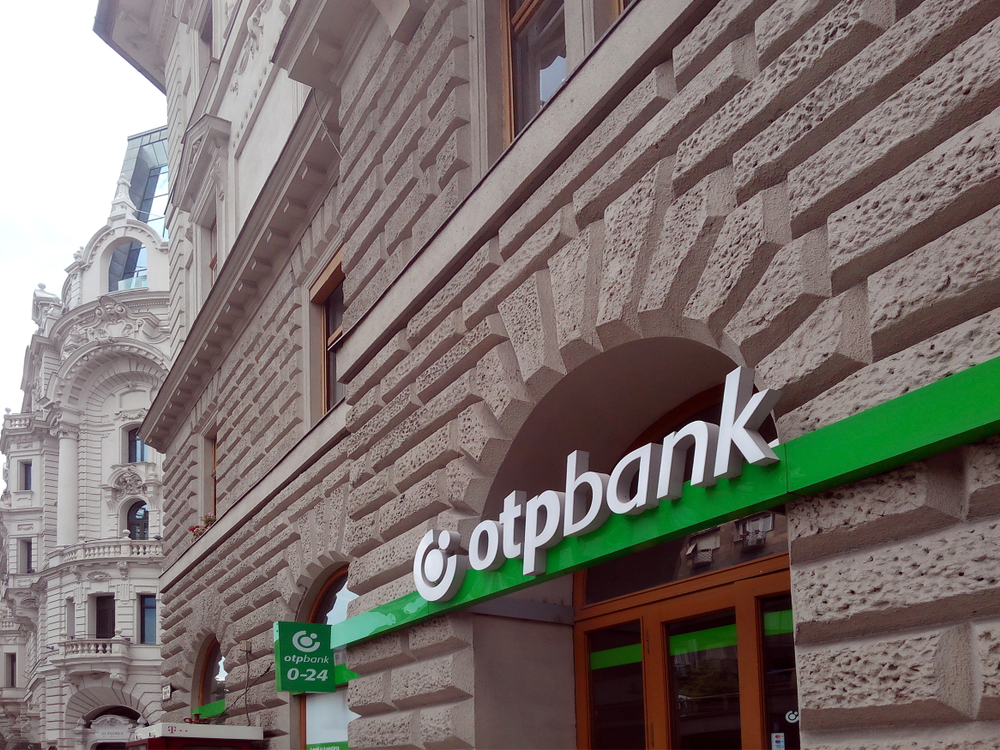OTP Q1 profit climbs over HUF 93 bln as provisions drop

Image by Adriana Iacob / Shutterstock.com
OTP Bank, Hungary's biggest commercial lender, booked consolidated first-quarter after-tax profit of HUF 93.3 billion, compared to a loss of HUF 4.1 bln in the base period, when provisions related to the pandemic and repayment moratoria weighed, state news wire MTI says, citing an earnings report released early Friday.
Net interest income edged up 1% to HUF 203.2 bln and net revenue from commissions and fees increased 4% to HUF 71.9 bln.
OTP booked HUF 8.5 bln in risk costs in Q1, a fraction of the HUF 91.7 bln in the base period.
Return on assets, including the impact of adjustments, rose 1.4 percentage points to 2%. Unadjusted return on equity improved 15.5 percentage points to 14.8%.
Earnings per share came to HUF 364 for the period.
OTP had total assets of almost HUF 24.308 trillion at the end of March, up 11% from 12 months earlier. The gross stock of client loans rose 5% to slightly above HUF 14.603 tln. Client deposits increased 12% to about HUF 18.383 tln.
In the loan book, the NPL ratio fell 0.4 percentage point to 3.7%.
After-tax profit of OTP's core business in Hungary increased 232% to HUF 56 bln, and all of its foreign units saw marked bottom-line improvements. OTP's foreign subsidiaries accounted for 47% of consolidated earnings during the period, with Bulgaria's DSK contributing HUF 18.3 bln, OTP Bank Ukraine HUF 8.8 bln, OTP Bank Russia HUF 8 bln and OTP Bank Serbia HUF 6.8 bln.
Commenting on costs, OTP said its branch network contracted 13% year-on-year - by 230 units - in Q1, mainly as the result of integration following acquisitions. It closed 123 branches in Bulgaria, 19 in Croatia, and 13 in Montenegro. Streamlining also reduced headcount by 601 in Bulgaria, 194 in Serbia, and 188 in Montenegro, it added. OTP attributed a staff cut of over 800 in Russia to "weaker business activity" due to the pandemic and noted that around 600 of the redundancies were sales agents.
OTP said participation rates in repayment moratoria were on the decline in all of its markets. At the end of March, the participation rate at the core business in Hungary stood at 32.5%, while it was 5.2% at the business in Croatia and 4.7% at SKB in Slovenia.
The bank said it had gross operative liquidity reserves equivalent to EUR 8.9 bln at group level at the end of March.
SUPPORT THE BUDAPEST BUSINESS JOURNAL
Producing journalism that is worthy of the name is a costly business. For 27 years, the publishers, editors and reporters of the Budapest Business Journal have striven to bring you business news that works, information that you can trust, that is factual, accurate and presented without fear or favor.
Newspaper organizations across the globe have struggled to find a business model that allows them to continue to excel, without compromising their ability to perform. Most recently, some have experimented with the idea of involving their most important stakeholders, their readers.
We would like to offer that same opportunity to our readers. We would like to invite you to help us deliver the quality business journalism you require. Hit our Support the BBJ button and you can choose the how much and how often you send us your contributions.








